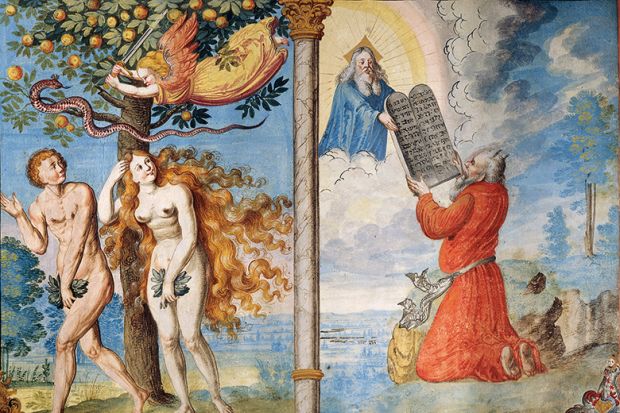A new policy at a religious university in the US directing scholars to avoid teaching “erotic” or “graphic” material has reignited a debate over how faith institutions can reconcile their spiritual values with academic freedom.
Cedarville University, a private institution in Ohio, implemented its “biblically consistent curriculum policy” earlier this year.
It tells faculty that material that is “clearly pornographic, erotic, obscene, or graphic must be avoided”; dramatic “scripts with swearing must be avoided or modified”; and “as a general rule, ‘R’ rated movies [which require those under the age of 17 to be accompanied by an adult] will not be shown”.
“Plays with morals or teachings that run counter to the scriptural standard should be evaluated for what value they bring to the campus,” the policy adds.
Cedarville’s policy states that the guidelines are “not designed to restrict the free discussion of ideologies, philosophies, or schools of thought that may or may not run counter to biblical truth. Rather, this policy is focused on images, movies, songs, plays, or writing that may be considered ‘adult’ in nature, that represent immorality, or that may be a stumbling block to students.”
The new code is seen as the latest example of the university’s increasingly conservative approach since its current administration took over in 2013.
Carl Ruby, former vice-president for student affairs, left the institution after 30 years just months before current president Thomas White took the helm in July 2013. Dr Ruby, who said that he had attracted criticism from colleagues for “bringing in speakers who were not necessarily Republicans”, claimed that the new policy had been announced after high school students who took online courses at the university complained that some of the material “didn’t line up with a very conservative Christian viewpoint”.
While he admitted that “there have always been limits on academic freedom at Cedarville”, he said that the new policy has “tightened that significantly, to [a point] where a handful of very conservative faculty [are] exerting control over the rest of faculty” in terms of “monitoring and approving what is being taught in the classroom”.
“Faculty are terrified of losing their jobs,” he added.
Mike Lopez, former professor of communication and member of the faculty committee, which acts as a liaison between staff and the administration, resigned in May after 34 years, citing “family reasons”.
“I know of some faculty in the humanities who are afraid because of the surveillance that they feel they are under,” he said. “When the assumption is made that anything ‘R’ rated must be approved by a department chair or dean for fear of injuring students, it hobbles the faculty’s ability to train professionals in the field of humanities.”
John Fea, chair of the history department at Messiah College, a private Christian institution in Pennsylvania, has written about Cedarville’s policy on his personal blog. He said that the new curriculum “confuses education with indoctrination”.
Times Higher Education contacted several academics who are currently based at Cedarville, seeking their views on the new policy.
Mark C. Smith, chair of the department of history and government, was one of the few who responded.
“The policy has no impact on our political science instruction or offerings. We are free to explore the universe of ideas with our students, and we pursue and examine arguments that are both consistent with or at odds with a biblical view of the world,” he said.
Naomi Harward, a journalism student at Cedarville, added that although there had been a “massive outcry about the policy when it was first leaked last semester”, she had not “heard any complaints that it is restricting or inhibiting anyone” since it was implemented.
Michael Poliakoff is president of the American Council of Trustees and Alumni, a non-profit organisation that aims to support liberal arts education, uphold high academic standards and safeguard academic freedom.
He said that the “freedom for private institutions to be able to pursue a lifestyle and worldview that is in keeping with their particular creed” must be “balanced” against “the importance of the liberal arts, which flourish in a context of a maximum freedom of enquiry, and the recognition that discomfort in learning is a very important part of preparation for the turbulent world that we inhabit”.
But he said that this was not an issue that only “conservative Christian colleges” have to contend with. “There is a great irony in that we’ve got secular institutions that are now contemplating putting trigger warnings” on sensitive material, he said.
Tom Mach, Cedarville's vice-president for academics, said students at the institution are “exposed to all worldviews” and “the large majority of our faculty support the policy”.
“Private religious institutions have the prerogative to establish parameters in their curriculum and have since the earliest days of education in America,” he said.
“If we restrict material that is prurient, material that is demeaning to women, or material that is overtly graphic or obscene, we do not believe that restricts academic freedom.”
后记
Print headline: New teaching policy ‘confuses education with indoctrination’




